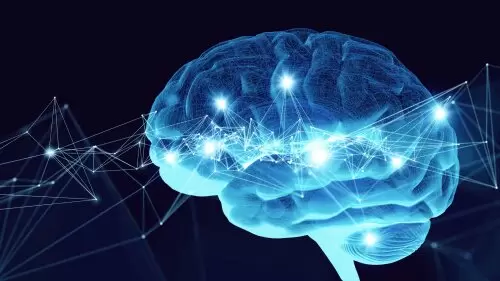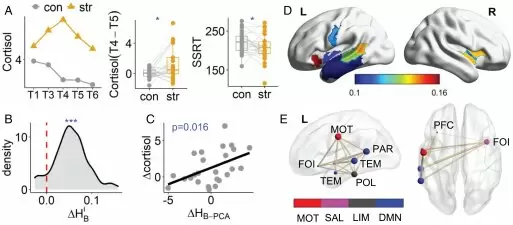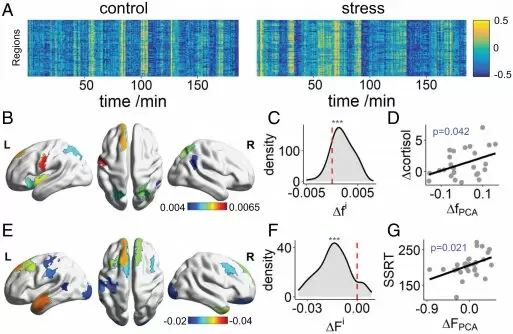
Interdisciplinary research at HKBU reveals stress related brain reconfiguration
17Jun

A key study on changes in brain networks under stress was recently published in the Proceedings of the National Academy of Sciences (PNAS). The interdisciplinary research was conducted by teams of Prof Changsong Zhou from the Department of Physics and Dr Rongjun Yu from the Department of Management at HKBU, with Dr Rong Wang, Hong Kong Scholars Program, and Dr Shanshan Zhen, Research Assistant Professor, Department of Management, as major collaborators. Dr Zhou and Dr Yu are also members of the System Health Lab, one of the HKBU’s six transdisciplinary research labs.
How the brain responds to acute stress has always been a major area of scientific interest. Previous research has mainly focused on the activation of specific brain areas under stress, or based on modules at a single level. In this project, the researchers examined stress-induced functional reconfiguration based on hierarchical modules using a within-subject design. To induce stress, participants were asked to describe themselves to the experimenter while being video recorded, before being instructed to rapidly perform an arithmetic subtraction task. Afterwards, participants entered the 3T MRI machine, where they undergo resting-state scanning and a series of cognitive-control tasks. Saliva samples were collected throughout the experiment. Saliva cortisol concentration was used as a physiological marker of stress level, while performance in the cognitive-control task was to indicate behavioural responses to stress. The study shows that in response to an acute social stressor, the brain can dynamically maintain a more integrated and less segregated state. Such changes in brain networks are associated with elevated cortisol levels and improved cognitive-control performance. The findings have theoretical and clinical implications for stress-related psychiatric disorders.
The research findings were published in PNAS: https://www.pnas.org/doi/10.1073/pnas.2204144119

Fig 1.
The cortisol responses were collected at different experiment time point

Fig 2.
The dynamic transition between segregated and integrated states was measured by the time-resolved.
About the System Health Lab
The System Health Lab unites HKBU’s research strength and provides multidisciplinary research collaboration in the basic disciplines such as mathematics, physics, chemical biology, together with the applied disciplines like physiology and medicine, geography, social sciences and communications, to explore the behavioral and wellbeing functioning mechanisms of complex systems including life, environment, human society and web media. This cross-disciplinary research platform is the first of its kind in China and promises great impact to the communities. HKBU has recently purchased a 3T MRI scanner, EEG, and other related neuroscience devices in association to the System Health Lab
About the researchers







